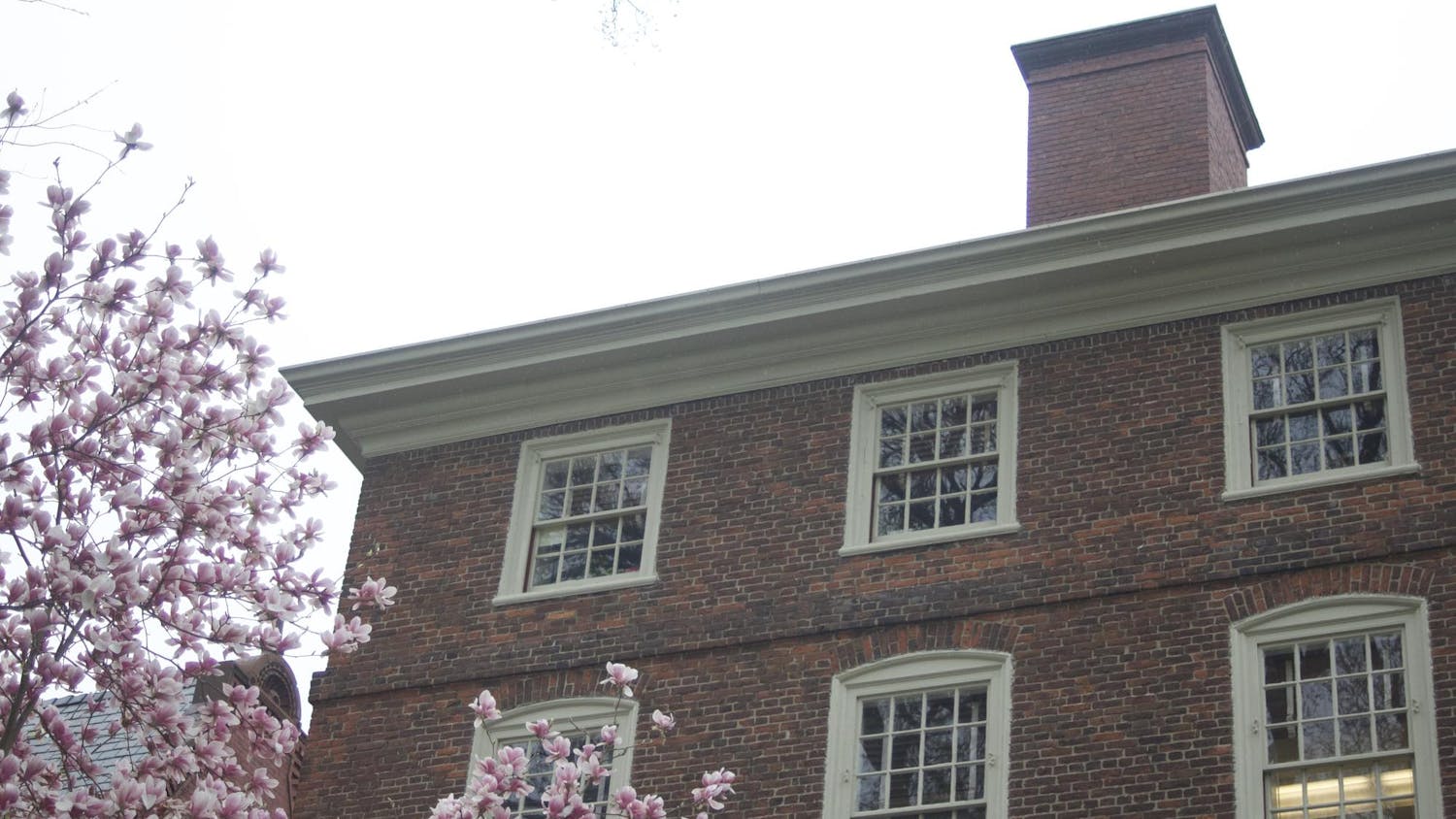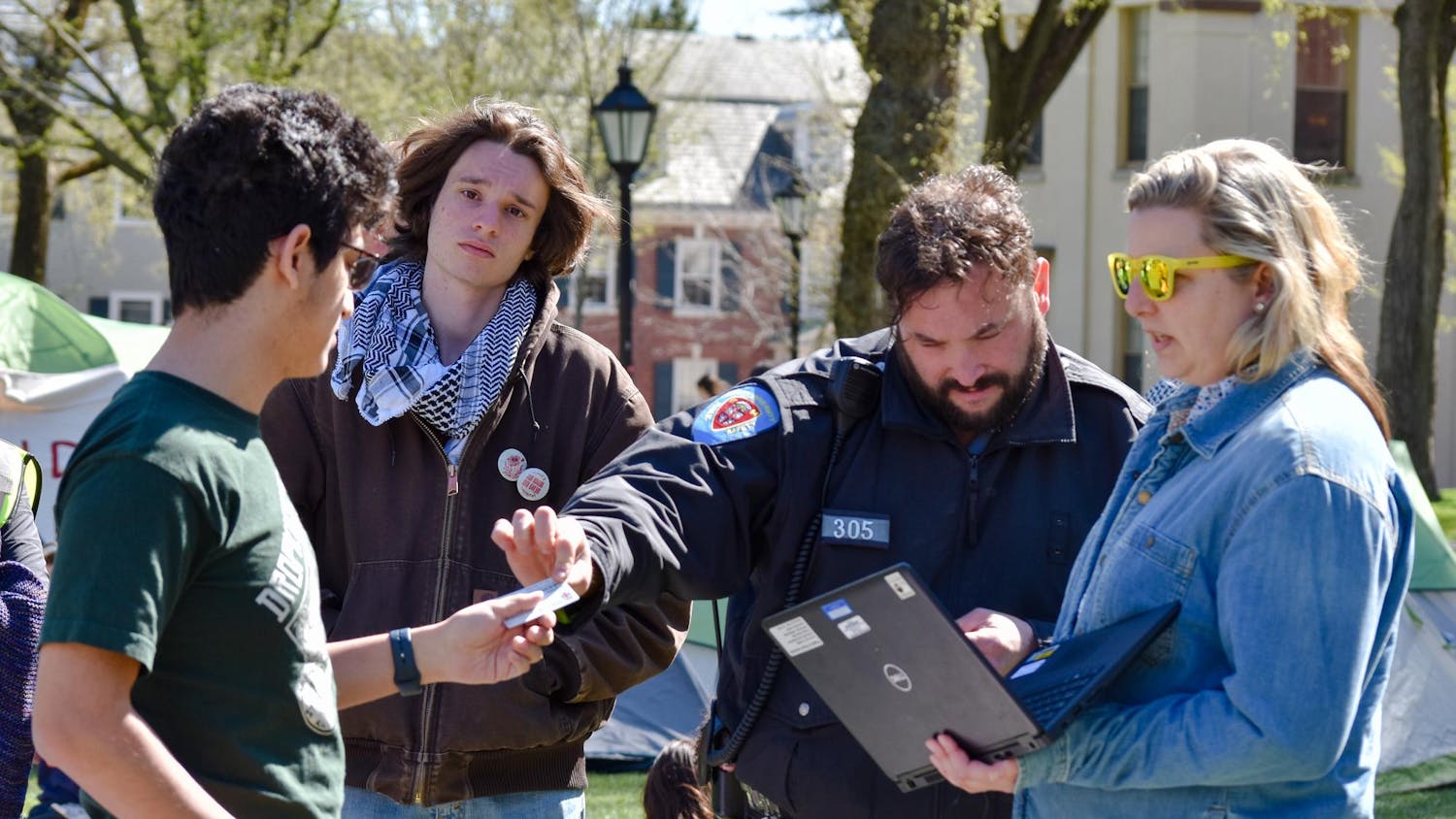President Obama’s proposal to increase the minimum wage from $7.25 to $9 per hour is unlikely to affect either student employment in college or financial aid packages, Brown administrators and professors told The Herald.
“If federal minimum wage goes to $9, that would have no impact on Brown student employment,” said Kenneth Chay, professor of economics. “There is little evidence of employment declining with modest increases in minimum wage,” Chay said.
Jim Tilton, director of financial aid at the Office of Student Employment, said such an increase in minimum wage would not affect students’ financial aid packages.
“Brown tends to have enough jobs every year to cover even those students that are interested in working who are not on financial aid,” Tilton said.
At $8.70 per hour, the minimum wage paid to students is higher than that mandated by the state, said Tracy Frisone, senior assistant director of student employment. “The vast majority on campus are already making more than that,” she added.
Most students said they think an increase in minimum wage to $9 an hour will have a positive impact.
Sheryl Hado ’13, who works for Brown University Dining Services, said the minimum wage hike would help attract students to jobs. “A lot of times, there are open shifts available because students sometimes feel like the amount of time they contribute to these jobs doesn’t equate to the pay,” she said.
“If it’s raised to $9 an hour, more people might get part-time jobs,” said Carissa Wills-DeMello ’13. “A lot of people I know don’t get part time jobs because they don’t make a lot of money for they hours they work,” she said, adding that the minimum wage increase might encourage more students to work outside Brown.
“When I started working for BuDS, starting pay was $8.25, and it took me six semesters to get up to $9.25,” Gerica Alvarado ’13 said. “More money is always good,” she added.
But some voiced concern about how the change would affect employment levels.
“If minimum wage was raised, I do feel like employment would go down,” said Caroline Guerreio ’13, though she added that, as a BuDS employee, “I can only be happy that the wage will increase.”
“In a completely free market economy, an increase in minimum wages results in low-wage workers losing jobs,” Chay said, but this is only true under free market assumptions.
“That’s not going to happen if the employer has some market power,” Chay said. “Because Brown has monopsony power over the wage” — meaning it is virtually the only “buyer” on the market for student labor — “I would be very surprised if Brown started laying off student workers due to an increase in minimum wage,” he said.
“Nobody (at Brown) is going to lose their jobs over this,” Chay said.
President Obama’s proposal to increase the minimum wage from $7.25 to $9 per hour is unlikely to affect either student employment in college or financial aid packages, Brown administrators and professors told The Herald.
“If federal minimum wage goes to $9, that would have no impact on Brown student employment,” said Kenneth Chay, professor of economics. “There is little evidence of employment declining with modest increases in minimum wage,” Chay said.
Jim Tilton, director of financial aid at the Office of Student Employment, said such an increase in minimum wage would not affect students’ financial aid packages.
“Brown tends to have enough jobs every year to cover even those students that are interested in working who are not on financial aid,” Tilton said.
At $8.70 per hour, the minimum wage paid to students is higher than that mandated by the state, said Tracy Frisone, senior assistant director of student employment. “The vast majority on campus are already making more than that,” she added.
Most students said they think an increase in minimum wage to $9 an hour will have a positive impact.
Sheryl Hado ’13, who works for Brown University Dining Services, said the minimum wage hike would help attract students to jobs. “A lot of times, there are open shifts available because students sometimes feel like the amount of time they contribute to these jobs doesn’t equate to the pay,” she said.
“If it’s raised to $9 an hour, more people might get part-time jobs,” said Carissa Wills-DeMello ’13. “A lot of people I know don’t get part time jobs because they don’t make a lot of money for they hours they work,” she said, adding that the minimum wage increase might encourage more students to work outside Brown.
“When I started working for BuDS, starting pay was $8.25, and it took me six semesters to get up to $9.25,” Gerica Alvarado ’13 said. “More money is always good,” she added.
But some voiced concern about how the change would affect employment levels.
“If minimum wage was raised, I do feel like employment would go down,” said Caroline Guerreio ’13, though she added that, as a BuDS employee, “I can only be happy that the wage will increase.”
“In a completely free market economy, an increase in minimum wages results in low-wage workers losing jobs,” Chay said, but this is only true under free market assumptions.
“That’s not going to happen if the employer has some market power,” Chay said. “Because Brown has monopsony power over the wage” — meaning it is virtually the only “buyer” on the market for student labor — “I would be very surprised if Brown started laying off student workers due to an increase in minimum wage,” he said.
“Nobody (at Brown) is going to lose their jobs over this,” Chay said.
ADVERTISEMENT




